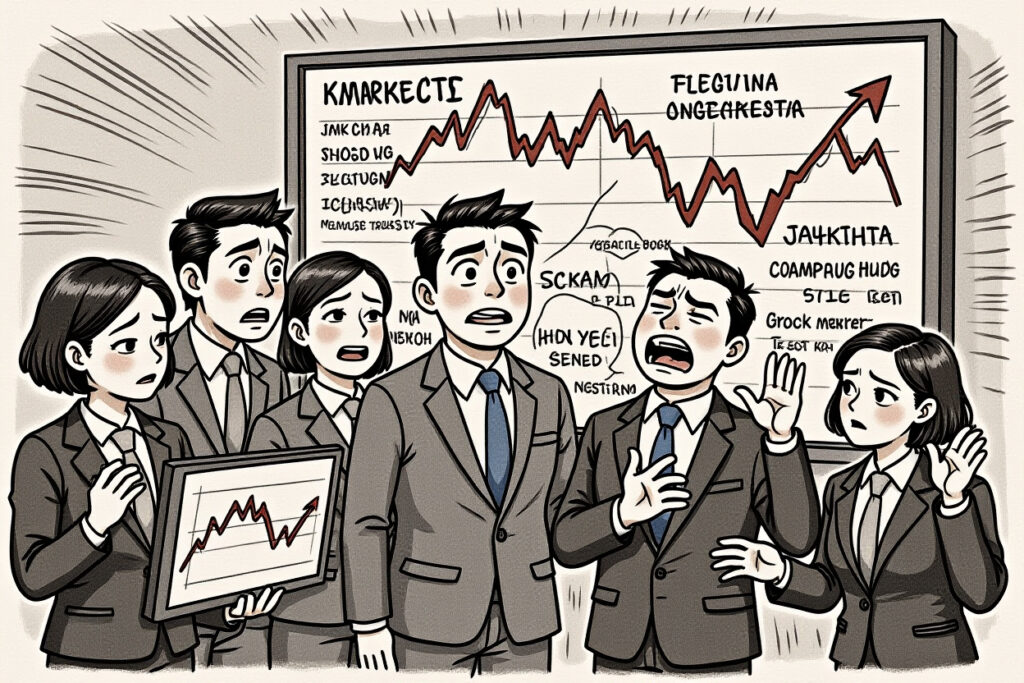At the recent 25th CIFIT · Phoenix Net Wutong Night Talk in Xiamen, Chen Xiaofeng (陈晓锋), Chairman of Zhejiang Kefa Capital Management and President of the Hangzhou Zhejiang University Alumni Association, highlighted a striking trend in global investment: the overwhelming focus on artificial intelligence. He noted that in U.S. investment circles, a popular saying has emerged—if it’s not AI, it’s not worth investing in. This sentiment underscores a broader shift in how investors perceive technology and its role in shaping the future of industries worldwide. Chen’s insights provide a compelling look into why AI has become the centerpiece of modern investment strategies and what this means for businesses and economies globally. The Rise of AI Investment Mania Chen Xiaofeng’s observations point to a significant transformation in investment priorities. In recent years, artificial intelligence has moved from a niche technology to a mainstream driver of economic growth. Venture capital firms, private equity investors, and even public market participants are increasingly directing funds toward AI-focused startups and enterprises. This trend is particularly pronounced in the United States, where tech hubs like Silicon Valley have become epicenters of AI innovation and funding. The reasoning behind this shift is clear: AI promises unparalleled returns by revolutionizing how businesses operate, compete, and create value. Why AI Captivates Investors Investors are drawn to AI for several key reasons. First, the technology offers scalability—AI solutions can be applied across diverse sectors, from healthcare and finance to manufacturing and retail. Second, AI-driven companies often demonstrate rapid growth potential, attracting those seeking high-yield opportunities. Finally, the pervasive nature of AI means it is not just a trend but a fundamental shift in how technology integrates with daily life and business operations. As Chen Xiaofeng emphasized, AI is not merely an industry; it is a transformative tool that enhances efficiency and innovation across the board. AI as a Foundational Tool, Not a Standalone Industry One of the most critical points Chen made is that artificial intelligence should be viewed as a foundational tool rather than a isolated sector. This perspective reframes the investment landscape, encouraging backers to look beyond pure AI companies and consider how AI can be integrated into traditional industries. For example, agriculture can benefit from AI-powered precision farming, while logistics companies use AI for route optimization and demand forecasting. This broader applicability means that the potential market for AI is virtually limitless, attracting investors who want to tap into cross-industry transformation. Examples of AI Integration – Healthcare: AI algorithms analyze medical images to detect diseases early, improving patient outcomes. – Finance: Automated trading systems and fraud detection tools leverage AI to enhance security and efficiency. – Retail: Personalized shopping experiences driven by AI recommendations boost sales and customer loyalty. – Manufacturing: Predictive maintenance powered by AI reduces downtime and operational costs. These examples illustrate how AI acts as an enabler, making existing processes smarter and more effective. The Global Impact of AI Investment The surge in AI funding is not confined to the United States; it is a worldwide phenomenon. Countries like China, the United Kingdom, and Germany are also prioritizing AI in their national strategies and investment portfolios. This global race underscores the belief that leadership in AI will translate to economic dominance in the 21st century. For investors, this means opportunities abound beyond traditional tech hubs, with emerging markets showing significant potential for AI-driven growth. Data and Trends Supporting the Movement According to a report by McKinsey, AI could deliver an additional $13 trillion to the global economy by 2030. Venture funding for AI startups reached record levels in 2023, with over $100 billion invested globally. These numbers highlight the confidence that investors have in AI’s long-term value. Chen Xiaofeng’s comments align with these trends, emphasizing that the push toward AI investment is backed by tangible economic potential. Challenges and Considerations for Investors While the opportunities are vast, investing in AI is not without its challenges. The technology is complex, and its rapid evolution means that investors must stay informed about latest developments to avoid pitfalls. Additionally, ethical concerns, such as data privacy and algorithmic bias, require careful attention. Investors need to balance enthusiasm with due diligence, ensuring that their investments align with both financial goals and societal values. Strategies for Smart AI Investing – Focus on companies with clear AI integration plans rather than those simply using the term as a buzzword. – Diversify investments across multiple AI applications to mitigate risk. – Partner with experts who understand the technical and ethical dimensions of AI. Chen Xiaofeng’s advice underscores the importance of a strategic approach to capitalizing on the AI boom. The Future of AI and Investment Looking ahead, the influence of artificial intelligence on investment will only grow. As AI technologies become more advanced and accessible, their applications will expand into new areas, from climate change mitigation to space exploration. Investors who recognize this potential early will be well-positioned to benefit from the next wave of innovation. Chen Xiaofeng’s insights remind us that AI is not a passing trend but a cornerstone of future economic development. Call to Action for Stakeholders For investors, businesses, and policymakers, the message is clear: embrace AI thoughtfully and proactively. By fostering environments that support AI research and implementation, stakeholders can drive sustainable growth and stay competitive in a rapidly changing world. The time to act is now—explore AI opportunities, educate teams, and collaborate to harness the full power of this transformative technology.
Why Every Investor Is Pouring Money Into AI: Insights from Chen Xiaofeng on the Global Trend




